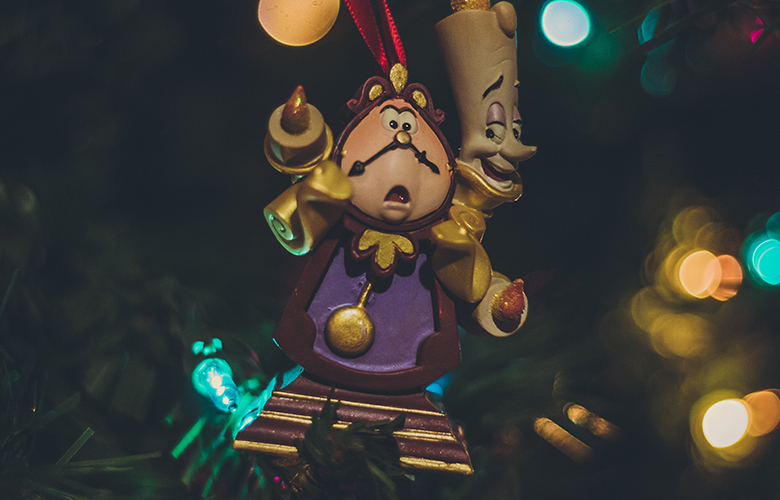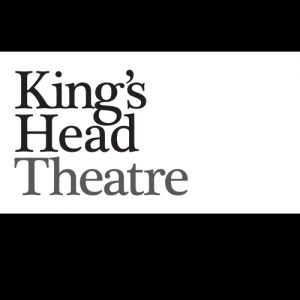
Robyn Grant, Artistic Director of Fat Rascal Theatre talks to King’s Head Theatre about bringing Beauty and the Beast back for a new run. This time with a slant on the fairytale, a gender swap between Belle and the Beast.
Most fairy-tales tell the story of ‘beautiful girl’ being rescued by ‘beautiful boy’ and falling in love; which yes, isn’t great for us sisters doing it for ourselves, but it could be believable. If I was trapped in a tall tower, for example, I’d be so bored and randy that if a strapping young hunk appeared, HELL YES I’d throw him my hair to swing from.
But with Beauty and the Beast, the story is frankly ridiculous and a bit gross.
“Oh look children, dancing cutlery! The charming tones of Angela Lansbury as a teapot! A woman who falls in love with her captor, a large pig-bear with a horrible temper and an unnecessary cape! Isn’t it romantic!?” Why are we so happy to accept that this could happen? Is it because as a society, we simply value men and women for different qualities?
The live action version offered little in redemption. Emma Watson didn’t wear a corset and the Beast could read (how lovely they share an interest), but just because he’s got a book in his hands, does that mean you’d jump into the sack with the kidnapping pig-bear, Emma!? We decided to take the matter into our own hands.
We’re parodying very close to Disney’s original story to show that with a simple gender swap, the story becomes utterly unbelievable. Because OF COURSE, a gorgeous young man couldn’t fall in love with a monstrous woman, could he?
We’re living in the time of #MeToo. A time where women’s voices are starting to be heard, and theatre is leading the way.
In this exciting time of change, we think it’s really important to look at something very treasured and familiar, a classic Disney film, and see how that could have played a role in the gender stereotyping of our culture.
We have to question everything around us, to re-learn the way we look at old stories and films, and not reject them, but just acknowledge what we can do better in the future. Our show’s a jolly prod at traditional gender values and we think that’s a great way forwards.
We found that by simply swapping the genders, the story suddenly became incredibly ridiculous, farcical and utterly unbelievable. We’ve tried to keep a lot of the characters’ existing traits and personalities because it didn’t need much tweaking to prove our point perfectly!
We love the original film and are massive Disney fans, so it’s been really fun recreating those magical moments and iconic characters; but it’s amazing what a difference it makes with the genders reversed! For example: Macho man Gaston becomes Chevonne, the aggressively sporty village it-girl, in hot pursuit of pretentious and delicate Beau (originally Belle), who’s more interested in his books than in any girl in the village.
I just finished reading SHRILL by Lindy West which I absolutely loved. She’s a bold, unapologetic and wildly intelligent writer. SHRILL is a series of essays on feminism, fat shaming and funny women. I raced through it; laughing, crying and shouting ‘YAS!’ at regular intervals. I’m now reading ‘A Discovery of Witches’ by Deborah Harkness. A choice which definitely didn’t rest on its new Sky TV adaptation starring Matthew Goode as a sexy vampire and Alex Kingston as an amazing lesbian witch. It’s glorious fluff but I’m a firm believer in getting your fill of the serious and the silly; which kind of sums up our show… Gosh, I rounded that off well didn’t I?
Also On TheatreArtLife:
Diversity And Inclusion: Get On Board
10 Tips For The Aspiring Playwright


The King’s Head Theatre was established in 1970. Passionate about championing ethically produced fringe theatre, we are known for our challenging work and support of young artists. Last year 116,151 audience members saw a show of ours: 44,607 at our 110-seater home on Upper Street and 71,544 elsewhere. At our home in Islington we had 774 performances last year of 95 different shows. We are committed to fighting prejudice through the work we stage, the artists and staff we work with and by producing work for minority audience groups. We believe in fair pay for all on the fringe and create accessible routes for early career artists to stage their work; work we are passionate about. Last year we announced the theatre is on the move. Subject to a fundraising campaign, the King’s Head Theatre will move into a custom-built space in the heart of Islington Square, directly behind its current home securing the future of the venue for generations to come.
Read Full Profile© 2021 TheatreArtLife. All rights reserved.

Thank you so much for reading, but you have now reached your free article limit for this month.
Our contributors are currently writing more articles for you to enjoy.
To keep reading, all you have to do is become a subscriber and then you can read unlimited articles anytime.
Your investment will help us continue to ignite connections across the globe in live entertainment and build this community for industry professionals.